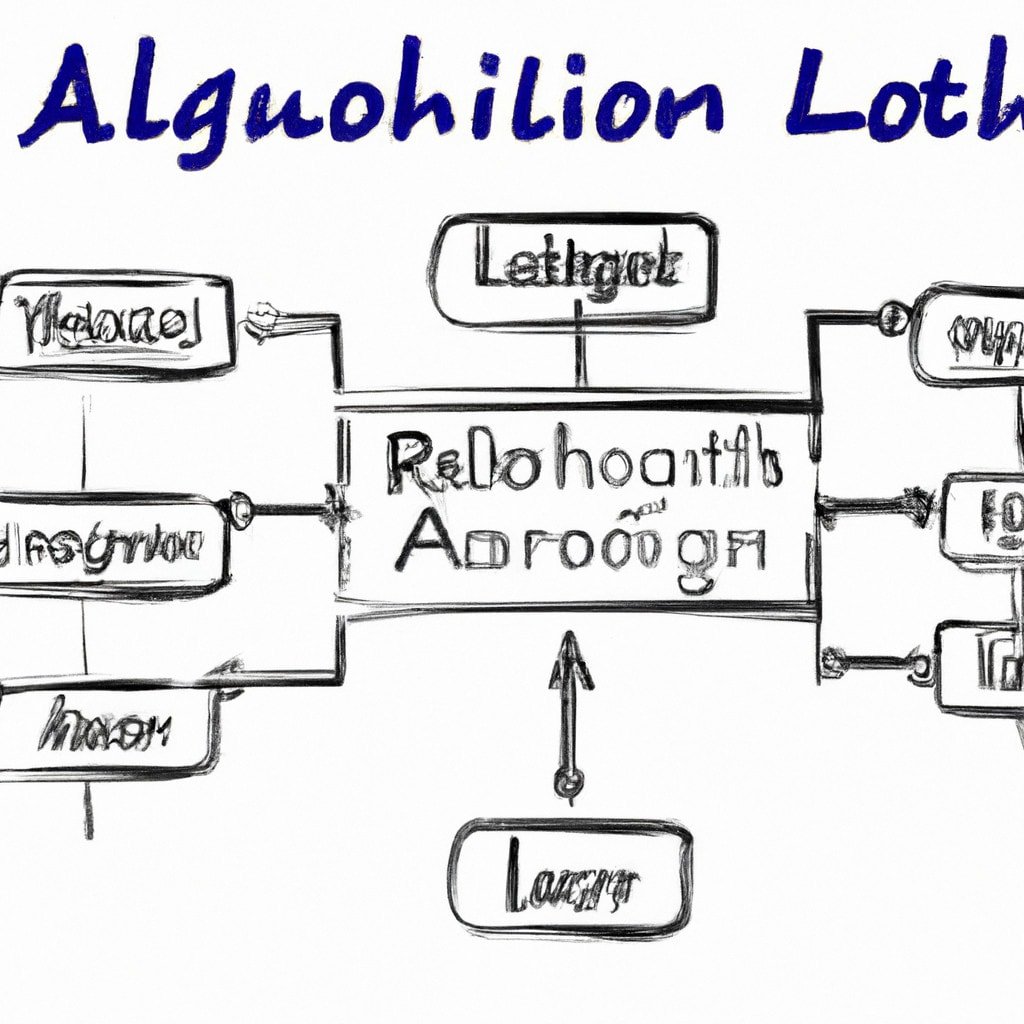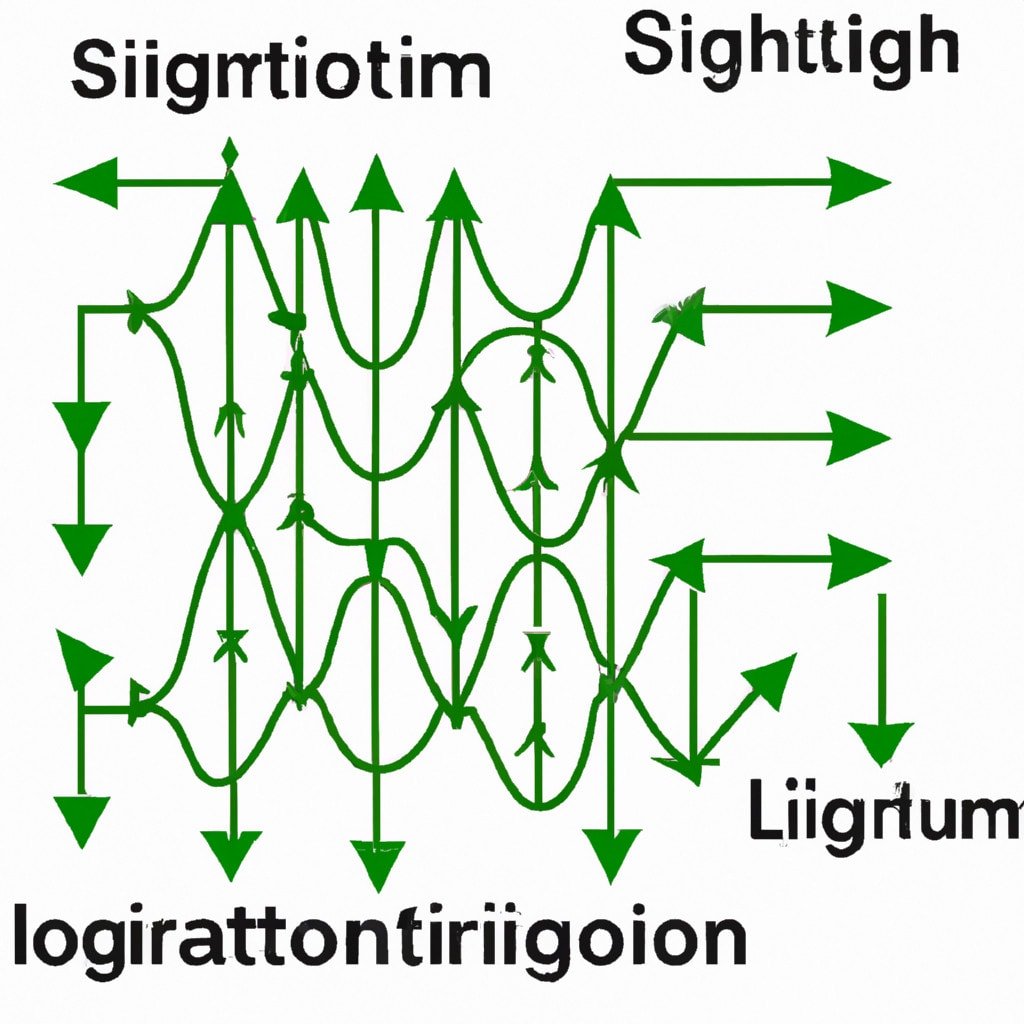Have you ever wondered why was algorithm invented? If you’re curious about the incredible story behind algorithms, look no further. In this informative article, we’ll dive deep into the history of algorithms, their importance, and the ingenious minds that brought them to life.
A Brief History of Algorithms
The concept of algorithms dates back thousands of years, but the term “algorithm” itself originated in the 9th century. It is derived from the name of a Persian mathematician, Al-Khwarizmi. He was responsible for introducing algorithms to solve different problems through a systematic and logical process.
Before diving into the reasons why algorithms were invented, let’s take a moment to define what an algorithm is: An algorithm is a step-by-step procedure for solving a problem or accomplishing a specific task. In essence, algorithms are the foundation of computer programming, as they provide instructions to computers on how to process data and solve problems efficiently.
Understanding the Purpose of Algorithms
Now that we have laid out the definition of algorithms, let’s explore the reasons why they were invented.
Efficiency and Problem Solving
One of the primary reasons why algorithms were invented was to aid in problem-solving and make tasks more efficient. By breaking down complex tasks into smaller, manageable steps, algorithms allow humans and machines alike to accomplish tasks with ease and precision.
For example, think of solving a mathematical equation. Without an algorithm or a series of steps to follow, attempting to solve the equation would be a challenging and time-consuming endeavor. However, by employing a systematic approach with a specific algorithm, solving the equation becomes more streamlined and straightforward.
Building the Foundation for Computer Science
Another critical reason for the invention of algorithms is that they serve as the building blocks for computer science and programming. As computers are designed to process data and make calculations based on instructions, algorithms play a crucial role in guiding these devices through complex tasks.
The advent of algorithms in computer science began in the mid-20th century when mathematicians and engineers started exploring ways to develop artificial intelligence (AI). Algorithms provided a way to implement logical reasoning into machines, allowing them to mimic human-like problem-solving abilities.
The Journey from Mathematics to Technology
Throughout history, algorithms were closely tied to mathematics. However, as technology evolved, the use of algorithms expanded into various fields, including engineering, finance, and artificial intelligence.
This expansion in application resulted from the need to find new ways to process vast amounts of data and information quickly and effectively. By implementing algorithms in these sectors, experts were able to improve decision-making processes, automate repetitive tasks, and unlock new possibilities for innovation and growth.
The Ingenious Minds Behind Algorithms
When discussing why was algorithm invented, we must pay tribute to some of the brilliant minds that contributed to their development.
Al-Khwarizmi: The Father of Algebra
As mentioned earlier, the Persian mathematician Al-Khwarizmi played a significant role in the invention of algorithms. His extensive work in algebra led to the development of systematic approaches for solving equations and laid the foundations for the field of algorithms as we know it today.
Euclid: The Ancient Geometer
Another noteworthy figure in the history of algorithms is the ancient Greek mathematician Euclid. He devised the Euclidean algorithm, which is an efficient method for finding the greatest common divisor of two numbers. This algorithm is still in use today and serves as a perfect example of how powerful and enduring algorithms can be.
Ada Lovelace: The First Programmer
Ada Lovelace, an English mathematician from the 19th century, is often considered the first computer programmer. Working alongside Charles Babbage, she developed algorithms for Babbage’s Analytical Engine – a mechanical general-purpose computer design that was never completed due to financial constraints. Nevertheless, Lovelace’s work laid the groundwork for future computer programming and the algorithms at the heart of modern computing.
Conclusion: The Timeless Art of Algorithms
So, why was algorithm invented? In summary, algorithms were invented as a means to solve problems efficiently, excel in computer science, and expand the horizons of human knowledge. Over time, as our understanding of technology and mathematics grew, algorithms played a pivotal role in shaping different areas of study and industry, all while showcasing the ingenuity of great minds throughout history.
Now that you’ve discovered the reasons behind the invention of algorithms, it’s easier to appreciate their impact on our lives today. From our smartphones and computers to the many advances in AI, the fascinating journey behind algorithms has truly transformed the world as we know it.
The Algorithm Effect – How An Entire Population Becomes Mentally Sick
POV: You Use An illegal Algorithm
What is the purpose behind developing algorithms?
The purpose behind developing algorithms is to provide a clear, efficient, and structured approach to solving complex problems or performing specific tasks. Algorithms are essential in various fields such as computer science, mathematics, data analysis, artificial intelligence, and many more.
Some of the critical purposes behind developing algorithms include:
1. Efficiency: Algorithms aim to optimize the use of resources like time and memory, allowing for faster and more effective solutions.
2. Clarity: A well-defined algorithm ensures that the steps to solve a problem are easy to understand and follow.
3. Scalability: Efficient algorithms can handle large volumes of data or complex tasks without compromising performance.
4. Reusability: Algorithms can be reused and adapted for various situations, making them versatile tools in problem-solving.
5. Reliability: A robust algorithm consistently provides accurate results or desired outcomes, ensuring a reliable solution.
In summary, the development of algorithms is crucial for creating efficient, clear, and effective solutions to complex problems across numerous disciplines.
What was the initial purpose of the first algorithm?
The initial purpose of the first algorithm was to solve a specific mathematical problem by providing a clear sequence of instructions. One of the earliest known algorithms is the Euclidean algorithm, developed by the Greek mathematician Euclid around 300 BCE. This algorithm calculates the greatest common divisor (GCD) of two integers, which is crucial for numerous applications in arithmetic and number theory. The Euclidean algorithm allows users to systematically find the GCD, demonstrating the power of procedural thinking and laying the foundation for modern algorithmic concepts.
What is the concept underlying algorithms?
The concept underlying algorithms is the idea of a step-by-step procedure for solving a specific problem or performing a particular task. An algorithm is a finite sequence of well-defined instructions, which takes an input, performs certain calculations or manipulations, and produces an output. In the context of computer science and programming, algorithms are essential for designing efficient and effective solutions to a wide range of problems. The performance of an algorithm can be measured by its time complexity (how fast it runs) and space complexity (how much memory it uses).
Some key aspects of algorithms include:
1. Unambiguity: Each step of the algorithm should be clearly defined and not open to interpretation.
2. Termination: The algorithm must eventually come to an end, producing a result or reaching a specific condition.
3. Finiteness: The algorithm should have a finite number of steps.
4. Input: The algorithm should accept one or more inputs.
5. Output: The algorithm should produce at least one output or result.
In summary, the fundamental concept of algorithms is the development of a clear and efficient set of instructions to solve a problem or perform a task in a systematic manner.
Why is the necessity for an algorithm?
The necessity for an algorithm arises from the need to solve complex problems efficiently and consistently, making them an essential part of computer science and programming. Algorithms provide a systematic, step-by-step approach to solving problems, enabling computers and humans alike to process information and make decisions based on input data.
Some reasons why algorithms are necessary include:
1. Efficiency: Algorithms help in finding optimal solutions for a problem with minimal time and resource consumption. Efficient algorithms can dramatically improve the performance of computer programs or manual tasks.
2. Consistency: By following a well-defined set of instructions, algorithms ensure that the output remains consistent across different instances, providing reliable results each time the algorithm is executed.
3. Scalability: As the complexity of a problem grows, the importance of a good algorithm becomes more apparent. A well-designed algorithm can handle large-scale problems, saving valuable time and resources.
4. Reusability: Algorithms can be reused in different applications or situations, allowing for code reuse and reducing the need to develop new methods for similar tasks.
5. Automation: Algorithms enable automation and reduce human intervention by providing clear instructions for machines to follow, helping to eliminate the risk of errors and streamline processes.
In conclusion, the necessity for an algorithm lies in its ability to solve problems efficiently, consistently, and accurately while improving the overall performance of computer systems or other tasks. They are fundamental tools used in various fields, such as science, engineering, finance, and artificial intelligence.
What were the main motivations behind the invention of algorithms?
The main motivations behind the invention of algorithms include:
1. Solving complex problems: Algorithms provide a structured and systematic way to solve complex problems by breaking them down into smaller, more manageable tasks. This enables problem solvers to find efficient and effective solutions to challenging issues in various fields.
2. Optimizing processes: Algorithms help optimize processes by determining the most efficient way to complete a task or achieve a desired outcome. This can result in saving time, reducing costs, and improving overall performance.
3. Facilitating decision making: Algorithms can analyze large amounts of data to identify patterns, trends, and relationships, which can help inform and expedite decision-making processes in various industries, such as finance, healthcare, and technology.
4. Automating tasks: With the rise of computer technology, algorithms have revolutionized automation by enabling machines and software to perform tasks previously done by humans. This can increase productivity, reduce human error, and free up time for higher-level tasks.
5. Expanding human understanding: The development and study of algorithms have expanded our understanding of mathematics, computer science, and other fields. By studying algorithms, researchers can gain insights into the underlying structures and rules governing various phenomena, leading to new discoveries and innovations.
6. Improving artificial intelligence (AI) systems: Algorithms play a crucial role in the advancement of AI technologies by providing the foundation for machine learning, natural language processing, and other intelligent systems. The ongoing development of algorithms contributes to the creation of smarter, more capable AI systems.
How did the development of algorithms revolutionize problem-solving and computing?
The development of algorithms has significantly revolutionized problem-solving and computing by providing systematic, efficient methods for solving complex problems. This has allowed the creation of software applications that impact virtually every aspect of modern life.
One of the primary ways algorithms have revolutionized problem-solving is through their ability to break down complex problems into simpler, more manageable tasks. This enables computers to process and solve issues that would be difficult or even impossible for humans to work out on their own. Thanks to the development of sophisticated algorithms, computers can now solve a vast range of challenges, from optimizing business processes to predicting weather patterns.
Algorithms have also greatly improved computational efficiency. Advanced algorithms allow computers to complete tasks in minimal time and with fewer resources, making it possible to solve large-scale problems that were previously unfeasible. As a result, industries such as finance, logistics, and healthcare have seen drastic improvements in their ability to analyze data and make informed decisions.
Furthermore, algorithms have enabled the development of machine learning and artificial intelligence (AI). ML and AI rely heavily on algorithms to recognize patterns, make predictions, and adapt to new information. These advances have had a profound impact on various fields and technologies, including image and speech recognition, natural language processing, and autonomous vehicles.
Lastly, algorithms have fostered a more collaborative approach to problem-solving. Researchers and developers are able to share their algorithms in open-source repositories, allowing others to build upon existing knowledge and create new solutions. This collaborative environment has greatly accelerated advancements in computing and problem-solving across various domains.
In summary, the development of algorithms has revolutionized problem-solving and computing by breaking down complex problems, improving computational efficiency, enabling machine learning and AI advancements, and fostering collaboration among researchers and developers. As a result, we can now solve a plethora of challenges and continue to push the boundaries of what is possible with computers.
Which early inventions and breakthroughs in algorithms contributed most significantly to their widespread adoption and advancements?
The early inventions and breakthroughs in algorithms that contributed most significantly to their widespread adoption and advancements include:
1. Euclid’s Algorithm: Dating back to around 300 BCE, Euclid’s Algorithm is one of the earliest known algorithms. It is a method for finding the greatest common divisor of two numbers, and it is still widely used today because of its simplicity and efficiency.
2. Al-Khwarizmi: The Persian mathematician Al-Khwarizmi (circa 780-850 CE) is considered the “father of algebra.” He developed various algorithms for solving linear and quadratic equations, and his works were later translated into Latin, becoming fundamental texts for European mathematicians.
3. Leibniz’s Calculating Machine: In the late 17th century, German polymath Gottfried Wilhelm Leibniz invented a mechanical calculator capable of performing addition, subtraction, multiplication, and division. This calculating machine formed the basis for later mechanical and electronic calculators and computers.
4. Charles Babbage’s Analytical Engine: Charles Babbage, an English mathematician, designed the Analytical Engine in the mid-19th century, which was the first mechanical computer capable of executing a sequence of operations using loops and conditional branching. Although the engine was never built, it laid the foundation for modern computers and algorithms.
5. Ada Lovelace’s Algorithm: Ada Lovelace, an English mathematician and writer, was the first person to recognize the potential of Babbage’s Analytical Engine. She developed what is considered to be the first algorithm intended to be executed by a machine – a set of instructions for calculating Bernoulli numbers.
6. Alan Turing’s Turing Machine: In the 1930s, Alan Turing introduced the concept of the Turing Machine, a theoretical model of computation and algorithms. Turing Machines form the basic foundation of modern computer science and the study of algorithms.
7. John von Neumann’s Stored-Program Architecture: In the mid-20th century, mathematician John von Neumann developed the concept of stored-program architecture, which allowed both data and instructions to be stored in the same memory. This breakthrough paved the way for modern computers and programming languages.
8. Development of Programming Languages: Beginning with the assembly language in the 1940s, followed by Fortran, COBOL, LISP, and other programming languages, these advancements facilitated the creation, implementation, and understanding of complex algorithms.




